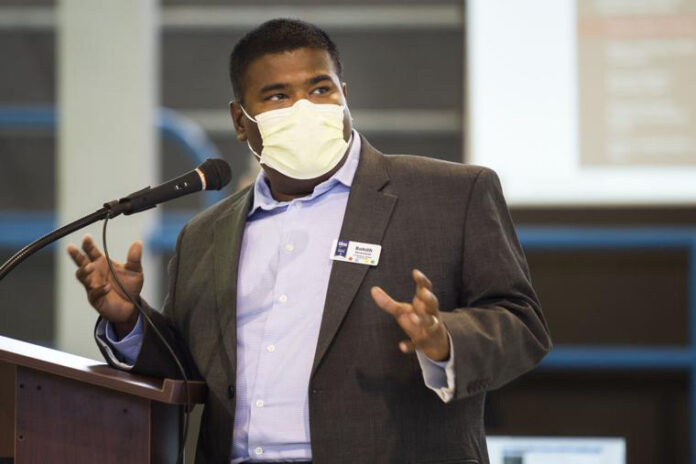As the COVID-19 Delta variant continues to spread throughout Ector County, local health officials on Tuesday renewed their pleas for residents to get vaccinated.
They also warned that the already deadly Delta variant may mutate into something more dangerous if residents don’t resume wearing face coverings, wash hands frequently and take other precautions like avoiding large community gatherings.
“It’s important because Delta variant cases continue to go up,” Medical Center Hospital Dr. Mandeep Othee said during a Tuesday afternoon news conference held at the hospital. “For awhile our COVID-19 cases had gone down.
“Unfortunately, this was not the end. The Delta variant, which is much more contagious is among us and it can mutate into something much more dangerous.”
MCHS officials reported 23 COVID-19 patients on Tuesday and Odessa Regional Medical Center reported 6.
It’s not clear how many of those patients have the Delta variant because all tests for the variant are conducted in Austin and it takes 2-3 weeks for results to be reported back, ORMC Chief Medical Officer Dr. Rohith Saravanan said on Tuesday. Saravanan did not participate in Tuesday’s news conference.
“The Delta variant is definitely in our community,” Saravanan said. “I would say most of those people testing positive for COVID-19 (in Ector County currently) likely have the Delta variant.”
Saravanan said he is basing that likelihood on national figures by the Center for Disease Control that indicate 83 percent of those being diagnosed with the Delta variant are people who have not been vaccinated.
Symptoms for COVID-19 and the Delta variant are the same, but the Delta is more aggressive and spreads much faster – which makes it potentially more dangerous, Saravanan said.
People who have already been vaccinated can still get infected by the Delta variant, but usually experience only minor symptoms, Saravanan said.
“It’s the unvaccinated who need to be concerned,” Saravanan said.
Othee said even those who have been vaccinated should continue wearing face coverings because they can still carry the Delta variant and pass it along to other people.
Saravanan and Othee are both optimistic that the current spike in COVID cases won’t reach the same proportions as in the latter half of 2020. But they warn that if the public doesn’t resume safety measures Ector County is headed for another rough future.
“It’s not a surge yet,” Saravanan said. “We don’t want it to be. We don’t want to get to the point again where we have to shut down the economy. But it’s possible.”
The biggest challenge the community faces is convincing people to get vaccinated, Othee and Saravanan agree.
About 40 percent of Ector County residents have been vaccinated.
“To really be able to say that COVID can no longer survive in our community we would need to reach an 80 percent vaccination rate,” Saravanan said.
Othee said many people continue to refuse getting vaccinated because they are being inundated with misinformation about vaccinations not being safe.
“There’s a lot of misinformation out there on the Internet – that people are experiencing severe side effects, that it’s part of a government effort to track people, or that the vaccines haven’t been tested,” Othee said. “None of that is true. I just had a patient refuse to be vaccinated because he believed it was a way for the government to plant a chip in him and monitor everything he does. That’s what we’re dealing with.”




